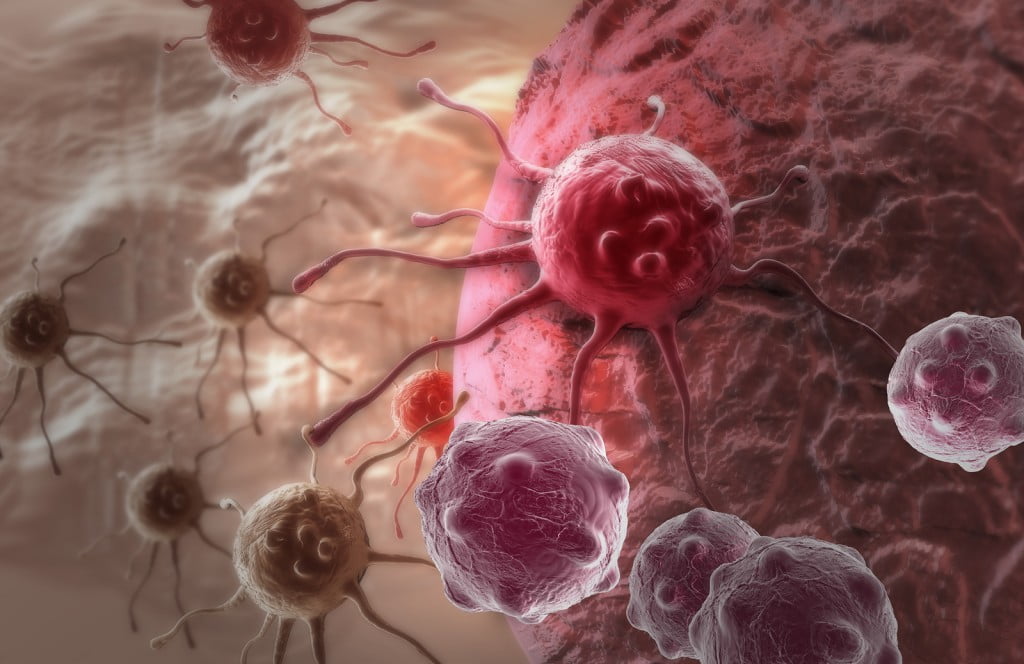Researchers at the Hebrew University of Jerusalem have discovered a process whereby tumor cells become resistant to certain drugs. This finding has the potential to significantly influence the manner in which anti-cancer drugs are administered, as well as the development of a way to reverse the spread of cancerous growth.
Although there have been numerous anti-cancer drugs developed, doctors are not able to determine in advance whether a patient may benefit from a specific drug. Therefore, the ability to determine how a patient’s tumor would respond to a given treatment through laboratory testing is crucial in entering the rapidly developing field of “personalized medicine.”
Related articles
- Israeli Doctor: ‘Curing Breast Cancer – An Attainable Goal’
- Tel Aviv Researchers Find New Way To Fight Ovarian Cancer
The researchers previously discovered that breast, lung and colon cancer cells change the structure of an enzyme called Mnk2, which is involved in the transmission of information from the environment or body into the cell. Following this discovery, the team managed to demonstrate that the enzyme MnK2 is found in two forms: it has a “normal” form, one which inhibits cancer, and a second form which promotes cancer development.
“Stressing-out” the enzyme
The research group, led by Dr. Rotem Karni, further showed that cancer cells also change the structure of the MnK2, destroying the normal form and triggering the form that promotes cancer. Thus, the cancer cells can survive and even grow faster. Moreover, the scientists discovered that the anti-cancer form of the enzyme activates a “suicide program” in normal cells under conditions of stress.
In an attempt to counter this process, Karni and his colleagues developed molecules that are capable of transforming the cancerous form of the Mnk2 enzyme back into its normal form. This conversion allows the cancerous form of the enzyme to become sensitive to stress and to the absorption of anti-cancer drugs. The molecules developed also make it possible to overcome the drug-resistance of cancer cells, instead making them sensitive and responsive to various anti-cancer treatments.
Sign up for our free weekly newsletter
SubscribeA new biomarker
“The mechanism we discovered explains how cancer cells eliminate the anti-cancer form of Mnk2 without changing their DNA, and how they become resistant to anti-cancer treatments — a problem which exists for almost every cancer treatment today,” explained Karni. “The new molecules we developed in order to change the structure of the Mnk2 enzyme back to its normal form will enable re-sensitizing cancer cells into anti-cancer therapies.”
These research results have the potential to prompt the development of a new biomarker for testing the response of a patient to specific drugs. Karni asserts that the possibility of determining whether or not a patient will benefit from a specific drug prior to the treatment itself is of primary medical interest.
The research was carried out by graduate student Avi Maimon under the supervision of Karni of the Institute for Medical Research Israel-Canada at the Hebrew University of Jerusalem’s faculty of Medicine. The research group is currently developing a diagnostic test for the marker discovered. These findings were also recently submitted as patents application by Yissum, the technology transfer company of the Hebrew University.
Photo: Cancer Cell by Bigstock
Related posts

Israeli Medical Technologies That Could Change The World

Harnessing Our Own Bodies For Side Effect-Free Weight Loss

Missing Protein Could Unlock Treatment For Aggressive Lung Cancer




Facebook comments